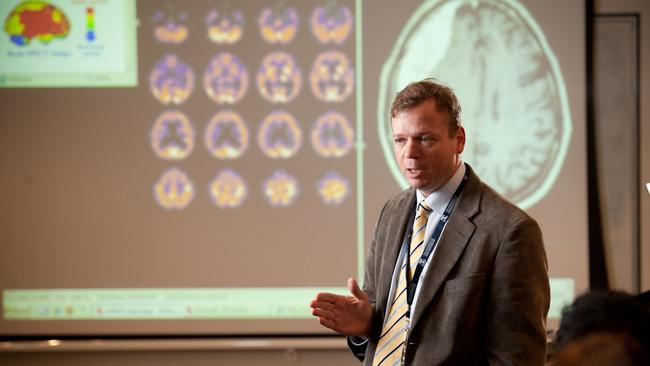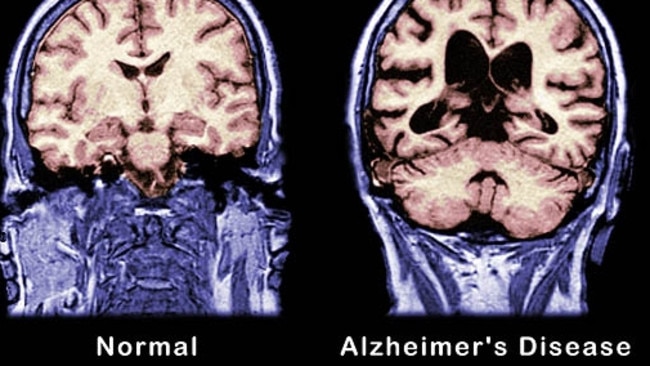Alzheimer’s disease drug study by Melbourne researchers shows promise
A MELBOURNE-led trial of a new drug to treat Alzheimer’s disease shows promising signs it could slow the spread of the neurological disease.

VIC News
Don't miss out on the headlines from VIC News. Followed categories will be added to My News.
A TRIAL of a new drug to treat Alzheimer’s disease has revealed it to be safe and well tolerated in patients, while showing promising signs it could slow the spread of the neurological disease.
Patients diagnosed with the most common form of dementia face nerve cell death and tissue loss, which over time, causes the brain to shrink, eroding its functions.
Attempts to slow the progression or stop the disease have long focused on reducing or preventing the build up of amyloid plaques in the brain.
After limited success, the focus is shifting to a protein called tau, which forms toxic tangles in the brain.
Royal Melbourne Hospital led a trial of the drug VEL015, or sodium selenate, which aims to prevent these tangles.
The 36 patients with mild to moderate forms of the disease took three tablets daily for 24 weeks.
Professor Terence O’Brien, head of the University of Melbourne Department of Medicine at the Royal Melbourne Hospital, said the drug showed great potential.

“It’s a small study so it doesn’t conclusively prove that this is going to be an effective treatment for Alzheimer’s disease, but it provides a lot of promise,” Prof O’Brien said.
“Firstly, we showed it was well tolerated and safe and secondly, we used a highly sensitive MRI technique that showed quite significantly that progression was slowed in the treated group.”
Although the drug didn’t appear to impact on patient’s cognition, or the levels of the proteins in their brain fluid, a sensitive form of MRI was able to show “significantly greater increase” in several clusters in the brain.
Previous studies using animal models have shown the drug can reduce the levels of tau protein and reverse memory decline.
While there were no changes detected in patient’s cognition levels, some families reported their loved ones’ memory had improved. Only one patient dropped out of the trial because of side effects, which included fatigue, headaches and nausea.
Prof O’Brien said after the trial’s completion some patients still took the drug “off label” and continued to do well.
The next step is to conduct a larger and longer trial, which will require finding a commercial partner. The research was published in theJournal of Alzheimer’s disease.


